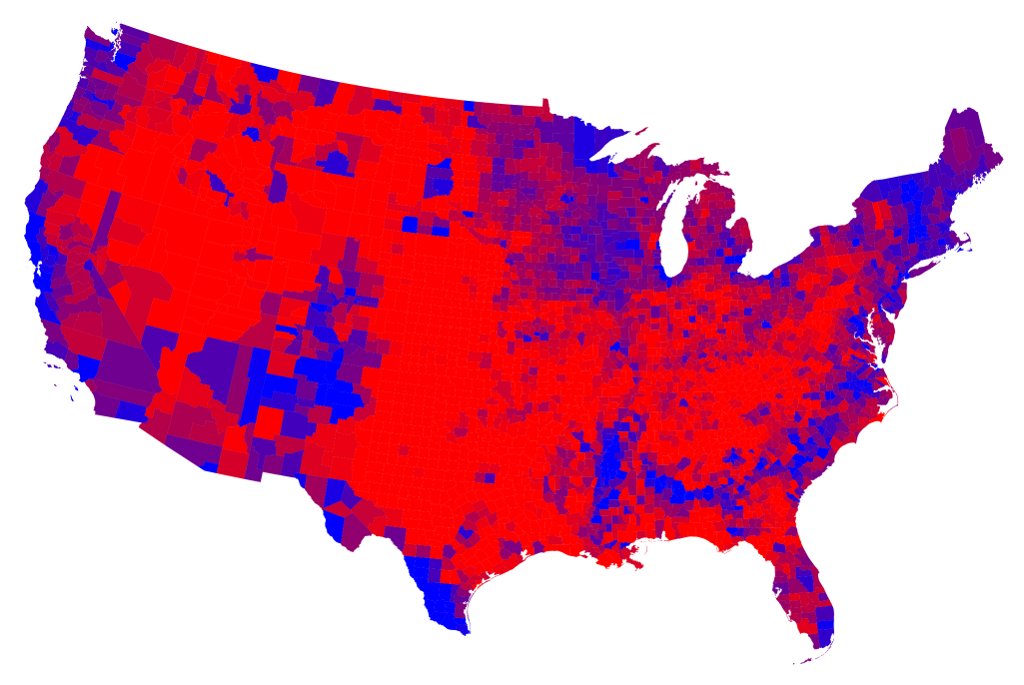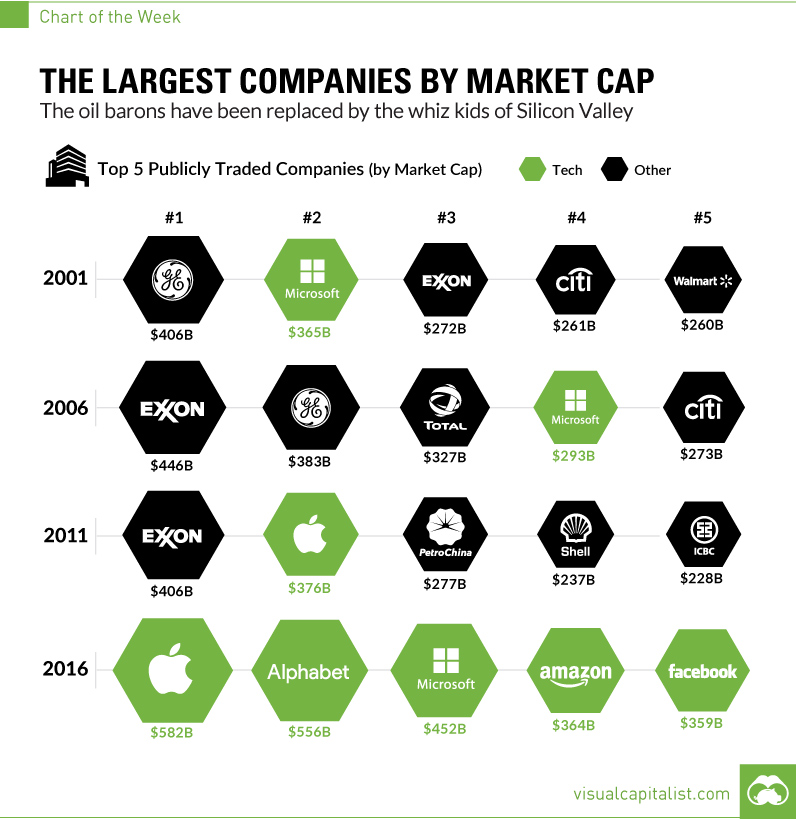(0/n): Serious Twitter thread time: I think the governing elites in both China and the US have a mental model of each other that is, in a few key political and economic respects, 10 to 20 (or maybe even 30) years out of date
(1/n): On a political level, until the 2017 <--> COVID timeframe, China generally saw the US as sometimes hypocritical and nearly 100% self-interested, but respected it as patient, confident, and competent, and critically, assumed it had a pro-business domestic consensus
(2/n): Specifically, China assumed that the US corporate class had political primacy, and was both able and willing to defend the Sino-US relationship from both natsec hawks, nativists, labor progressives, and human rights progressives.
(3/n): However, this assumption had a huge blind spot: it was vulnerable to the geographic polarization of American politics. This was a hidden variable China's political class failed to incorporate into their calculus
(4/n): American politics is FPTP at a district (Congress) and state (President) level. Geographic polarization makes the base more important than the middle for politicians in FPTP and therefore gave power to left/right-populism vs corporate centrism.
(5/n): However, China missed this shift. Specifically, the combined left-right populist defeat of the TPP in 2016 should have been a *gigantic* warning sign for China that America had changed and China needed to change how it engaged America.
(6/n): Even Russia - a country for whom relations with the US were much less important than they were for China - did better at engaging populists (specifically, right-populists) than China did.
(7/n): Now, even with this blind spot, China could have still mitigated even a disruptive populist like Trump if they and the US business community were 150% on the same page, like they were in the late 90s.
(8/n): However, America's corporate class itself had changed. Industrial, energy, financial, and retail had lost power to "megatech", which itself was different from the tech companies of the 2000s.
(9/n): China's original bargain with 1999 America's corporate titans boiled down to reducing their marginal cost structure. Well... megatech cares much less about marginal costs because of how software and cloud business models work. https://a16z.com/2011/08/20/why-software-is-eating-the-world/
(10/n): Instead, megatech wants customers. Actually not customers - users - or, *actually* actually, digital serfs, working an endless virtual cotton field of likes, shares, and user activity logs that can continuously optimize "platforms" for lock-in and virality.
(11/n): Western tech did not want "a billion workers" or "a billion customers". They wanted a billion users... a billion digital serfs.
And China did not let them get it.
And China did not let them get it.
(12/n): Now, to be fair, this was not China's intention in the 2008-10 banning of FB/Google. The CPC was relatively absent-minded on helping its domestic internet industry until much later. Jack Ma and Pony Ma were relative outsiders; Zhang Yiming was a total outsider.
(13/n): Almost by accident, Uighur/Tibetan/pro-democracy etc activists found a happy home on Western tech platforms in pre-2010 China, and FB/Google was banned in spite of their popularity. Such begat one of the most monumental geopolitical coincidences of the 21st century.
(14/n): An aside - if FB/Google had simply agreed to censor content for China in 2010 and grabbed even a plurality of China's users over the past decade, world history in the 21st century would have been meaningfully different. But, alas.
(15/n): But even without FB/Google, the Chinese tech market was still fiercely competitive. Chinese tech majors bulked up their products in this marketplace. And because of hard work and insane competition, for many use cases, they got *better* than Western megatech.
(16/n): Concurrently, Apple shifted its hardware supply chain to Asia. Grossly simplified: A phone designed in California/Korea has chips designed in Korea/SG/Cali/China and fabbed in Taiwan/Korea, other components from Korea/China, and human hands assembling it in China/Vietnam.
(17/n): Apple - and other companies like Samsung, Huawei, Xiaomi, and BBK - were powerful incentives for Chinese manufacturers to "up their game". China stopped being a low-cost mfr, and instead became the ONLY player with scale, breadth, depth, flexiblity, at good-enough quality
(18/n): And - this also taught Chinese mfrs another thing: how to go global. For the first time, they had to coordinate with Taiwanese, Koreans, Viets, Malaysians, Germans, and Americans in a complex supply chain.
(19/n): At the same time Chinese manufacturers were becoming ever-more globally savvy, Chinese tech companies were building better and better products - often driving value back to Apple and its competitors b/c they were smartphone-native.
(20/n): Apple liked both of those trends (well, minus Huawei - we'll get to that). And so China made a second assumption: it thought America was like Apple and also liked both those two trends.
(21/n): China was wrong. "Legacy corporate America" did not like trend #1 because their value-add in terms of design and branding was insufficient to insulate them from Chinese cos climbing the value chain of design, ops, logistics, and marketing.
(22/n): And megatech did not like trend #2, because Chinese tech cos were a direct competition for users (that they felt were unfairly sheltered by the Great Firewall).
(23/n): The US began packaging these complaints as IP theft and state subsidies, but what they really wanted was to reverse these two trends. China's response to US complaints on #1/#2 was ironically capitalist: "just work harder and be like Apple". Well...
(24/n): ...China failed to understand that not every Western company is as talent-rich, hypercompetitive, or overworked as a FAANG. In fact, most aren't.
(25/n): When some US companies started really feeling the heat from all this, China made a third mistake: it assumed the US sincerely believed in capitalism.
(26/n): Historically, the US has believed in free trade and capitalism up until the moment its companies start consistently losing. Then it becomes as mercantilist and corporatist as any other Great Power.
(27/n): So... zooming out, what happened?
China entered the trade war thinking 1) US companies consistently called the shots in America and 2) US companies would ultimately have its back. This was, to put it mildly, delusional.
China entered the trade war thinking 1) US companies consistently called the shots in America and 2) US companies would ultimately have its back. This was, to put it mildly, delusional.
(28/n): And so you saw China flailing around in 2018/19 looking for a new US constituency for political leverage: farmers, sports stars, Hollywood, Wall Street (itself much less powerful after 2008/9)... and generally not succeeding much.
(29/n): Now, Huawei was the canary in the coal mine because it had the least # of natural allies in the US political superstructure - it competed with Apple and directly threatened America's global SIGINT empire. And so it was the first to get hit.
(30/n): ...and as the war has intensified, who is for it?
Natsec and elite right, b/c hegemony
Populists and tradright, b/c racism
Elite left, b/c 'human rights', ESG, and megatech support
Megatech (minus Apple)
Legacy corporate (ambivalent but increasingly hostile)
Natsec and elite right, b/c hegemony
Populists and tradright, b/c racism
Elite left, b/c 'human rights', ESG, and megatech support
Megatech (minus Apple)
Legacy corporate (ambivalent but increasingly hostile)
(31/n): That's.... a big-ass coalition. Soybean buys, oil shipments, or Wall Street deals - while tactically deft and precise - are not enough to keep the relationship from getting worse.
(32/n): To wrap up the China half of this thread, China needs to forge a new pro-China coalition in the US, instead of simply thinking the US-China Business Coalition will be enough like in 1999.
To China's credit: it has been trying, but not hard enough. This is existential.
To China's credit: it has been trying, but not hard enough. This is existential.

 Read on Twitter
Read on Twitter



